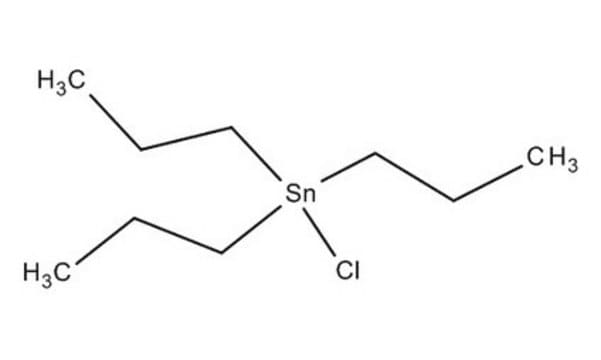41062
Sodium tetrapropylborate
for GC derivatization, LiChropur™, ≥85.0% (T)
Synonym(s):
NaBPr4
About This Item
Recommended Products
grade
for GC derivatization
Quality Level
Assay
≥85.0% (T)
form
solid
quality
LiChropur™
reaction suitability
reagent type: catalyst
core: boron
reagent type: derivatization reagent
reaction type: Alkylations
technique(s)
gas chromatography (GC): suitable
SMILES string
CCC[B-](CCC)(CCC)CCC.[Na+]
InChI
1S/C12H28B.Na/c1-5-9-13(10-6-2,11-7-3)12-8-4;/h5-12H2,1-4H3;/q-1;+1
InChI key
VKBNWVIDTHWBAZ-UHFFFAOYSA-N
General description
Application
Legal Information
related product
Signal Word
Danger
Hazard Statements
Precautionary Statements
Hazard Classifications
Pyr. Sol. 1 - Water-react 2
Storage Class Code
4.2 - Pyrophoric and self-heating hazardous materials
WGK
WGK 3
Flash Point(F)
Not applicable
Flash Point(C)
Not applicable
Choose from one of the most recent versions:
Certificates of Analysis (COA)
Don't see the Right Version?
If you require a particular version, you can look up a specific certificate by the Lot or Batch number.
Already Own This Product?
Find documentation for the products that you have recently purchased in the Document Library.
Our team of scientists has experience in all areas of research including Life Science, Material Science, Chemical Synthesis, Chromatography, Analytical and many others.
Contact Technical Service








